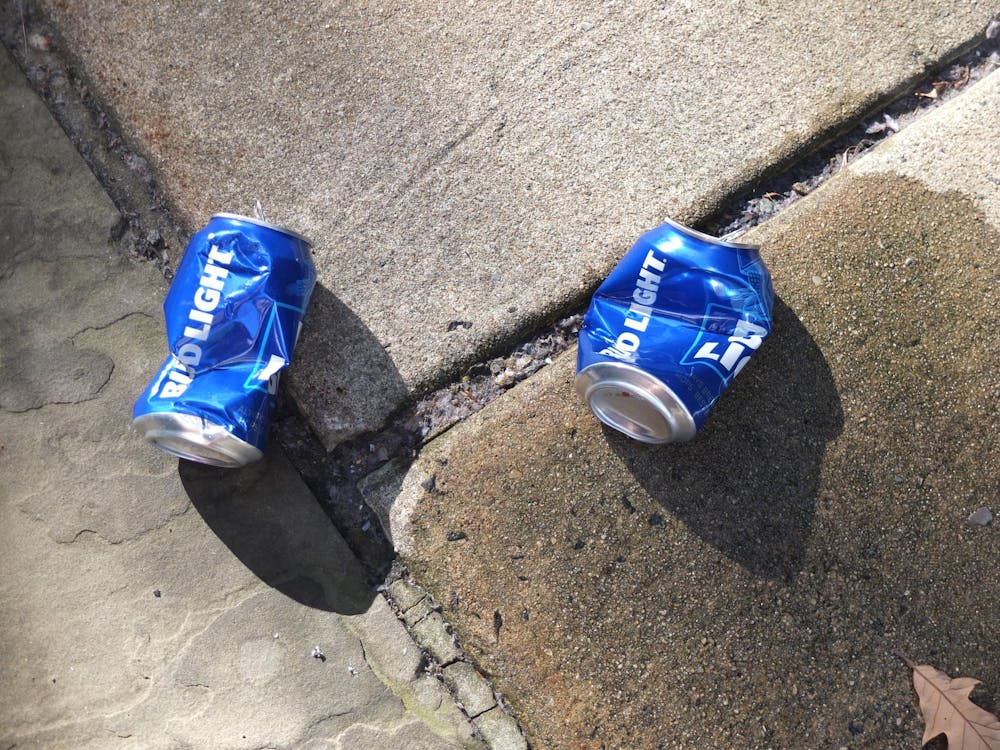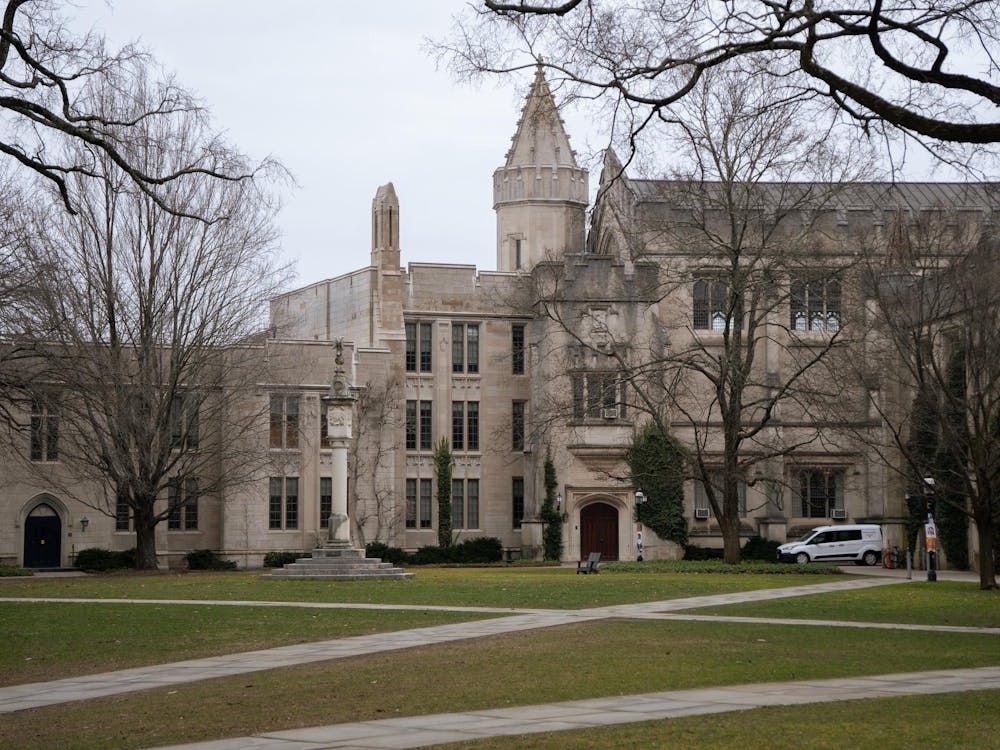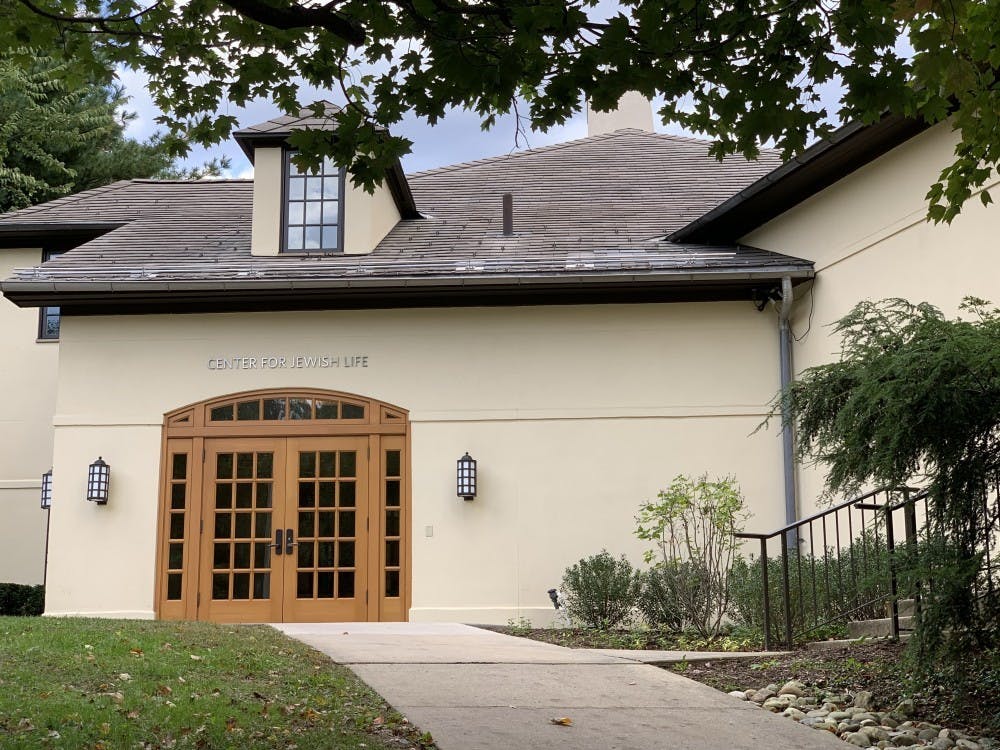“Cancel your Monday plans, they will not be happening,” read the email sent to residential college listservs from Cannon Dial Elm Club on Sept. 8. “Everyone knows nothing counts Lawnparties weekend and it’s time to make some questionable decisions. … We are waking up with 0 clue what happened.”
This could be read as satire, but it’s not clear that it actually is — events at which blackout drinking is part of the norm are shockingly common at Princeton. Plenty of words could describe such an event; “normal” and “healthy” would not apply. And Princeton’s alcohol policy is nearly completely ineffectual, with responsibility for students’ safety placed on fellow students rather than on institutions that serve alcohol like the eating clubs.
Although most student intoxication happens at the eating clubs, that’s not what University policy targets. For University events, Princeton’s Rights, Rules, Responsibilities (RRR) imposes restrictions: “those given approval to serve alcoholic beverages are responsible for ensuring that only those of legal drinking age are served, that alcohol is consumed … in a legal, healthy, and responsible way, and that no intoxicated individuals are served.” This is a workable model: It places responsibility for safe drinking on the providers of alcohol.
But as soon as students venture off of University property, the school turns a blind eye. Eating clubs are not regularly held accountable for safety issues related to drinking, and RRR makes it explicitly clear that intoxication is never grounds for discipline. Indeed, RRR imposes consequences only on other students, classifying “failure to call for assistance” as an “especially serious violation of policy.” Of course, this burden falls most heavily on those who are not intoxicated.
As such, Princeton burdens non-drinkers with the responsibility of keeping those around them safe — with drastic consequences for failure — which can place severe cognitive strain on them and tax their ability to enjoy themselves in social situations.
By refusing to assign any responsibility to students who drink excessively, the University enables them to drink as much as they wish. Indeed, they feel more secure in drinking excessively than they might otherwise because others around them are responsible for their safety. Instead of discouraging alcohol misuse, the University effectively encourages it, producing serious safety concerns.
One need not look past Lawnparties to see these concerns. This year, at the headliner, students close to the stage were crushed under the force of a crowd surge, and when asked to step back, the crowd resisted and then booed as the pleas of event administrators went ignored. The utter indecency of that moment was fueled by the free-flowing alcohol of the morning — and we are fortunate that no one was reported to be injured, or worse.
This issue is repeated: at each of the Fall 2021 and Spring 2023 Lawnparties, a student was injured in the crowd, with the 2021 incident leading to the The Daily Princetonian headline “Students bruised, bloodied, and trampled by crowd at Lawnparties.” Of course, it’s not just Lawnparties — the reason that first-years are now banned from “frosh week” is that in 2018, 28 first-year students were brought by Public Safety to McCosh or Princeton Medical Center for intoxication that weekend.
And one can look into students’ futures to see something worse: In 2023, 14 percent of college students met the criteria for alcohol use disorder. Allowing this to persist in the University culture is simply negligent.
Solving this issue requires a shift in policy enforcement from the University. Currently, eating clubs have vastly different safety measures in place, ranging from disparate security at the door to bartenders whose leniency varies.
The University must update its guidelines to place responsibility where it belongs — off of students to keep their friends safe and onto eating clubs and student organizations serving alcohol to the University community. Doing so would finally build the safe, healthy community we should aspire to become.
These organization must be held responsible when they fail to ensure the safety of their attendees. If a student requires medical attention due to an alcohol-related condition after attending an eating club party, they should not be subject to disciplinary consequences because that could discourage them from getting medical attention. However, if the club is determined to be responsible for systemically creating an unsafe environment after an investigation, the leaders of the club should face serious disciplinary consequences, including but not limited to removal from their positions. If the club consistently fails to ensure the safety of its attendees, then the University should threaten to discipline the students involved in future events at that club, thus hindering their ability to host unsafe events.

To ensure that eating clubs are held to consistent standards, a University-employed independent monitor should be present at all parties to help students in medical distress. This monitor would serve in the interest of safety, not discipline, to reduce harm and remove responsibility from non-drinkers. This measure is essential because it would prevent the eating clubs from covering up policy violations and ensure all those who needed help received it.
These policies would incentivize the careful monitoring of alcohol distribution to ensure everyone’s safety. They would also disincentivize “pregaming,” where students get extremely drunk before going to the eating clubs because the clubs would have a powerful incentive not to admit or provide alcohol to anyone who was already drunk.
It is important to note that the solution is not to remove the mandate for students to ensure others’ safety, nor is it to ban the consumption of alcohol. It is also not to crack down on eating clubs just for serving alcohol. College students drink regardless of policy, and research demonstrates that harm reduction approaches are the most effective alcohol policies. The best way to reduce harm is to make the eating clubs a space for healthy alcohol consumption by holding the clubs responsible when they become unsafe.
Princeton campus tours advertise the eating clubs as safe spaces where professional bouncers and bartenders control both the flow of individuals and of alcoholic beverages. For now, this is merely an ideal — but it is one that can become a reality with a simple, yet substantial shift in policy. Let’s finally make Princeton a safe place. For everybody.
Isaac Barsoum is a first-year contributing opinion writer from Charlotte, N.C. intending to major in Politics. He believes that loving Princeton means finding ways it can become a safer, happier, more inclusive place. You can reach him at itbarsoum[at]princeton.edu.








